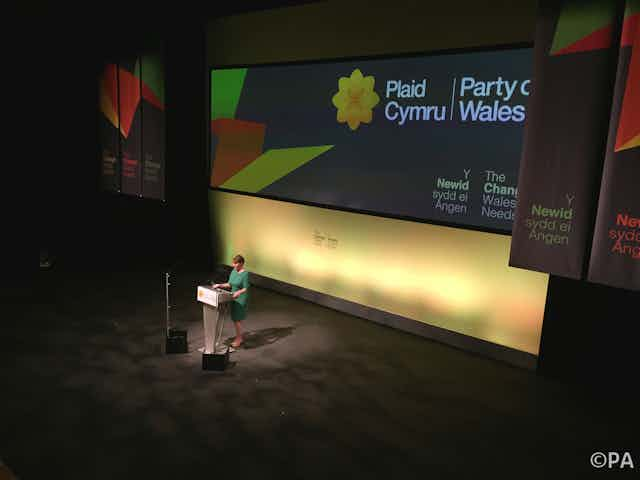The National Assembly for Wales reconvened following the elections on May 5, only to face perhaps what was one of the most turbulent days in the institution’s short history.
As it stands, the Welsh government is without a first minister, the parliamentary vote having resulted in a deadlock, with 29 Assembly Members – 28 from Labour and the Liberal Democrats’ sole AM Kirsty Williams – voting for Labour’s Carwyn Jones. AMs representing Plaid Cymru, the Welsh Conservatives and UKIP all voted for Plaid Cymru leader Leanne Wood to become first minister.
The news came as a surprise to many polticial commentators, journalists and AMs alike, many of whom had expected Carwyn Jones to take up the mantle once more, having previously held the position of first minister since December 2009. The newly elected presiding officer Elin Jones was even heard asking, “what do I do now?” before the proceedings were halted.
If Carwyn Jones was elected, Labour, which holds 29 of the Senedd’s seats – including deputy presiding officer Ann Jones who, like the presiding officer, did not vote in the first minister proceedings – would have sought to form a minority government, having just fallen short of the required majority of 31 seats.
Plaid Cymru, the official opposition, having put forward Leanne Wood for election as first minister would have sought to form a minority government with its 12 AMs.
Labour sources have told the Welsh media that Plaid had been offered a role by Carwyn Jones in creating the “legislative programme and to be included in the budget process from the beginning”, while Labour ran Wales as a minority government. Leader Leanne Wood asked for the first minister vote to be put off for a week but did not ask for further formal talks to take place beforehand.
With no first minister now elected, the assembly must reconvene at some point next week (most likely Tuesday) and attempt the vote again. If no first minister is chosen by June 2, the secretary of state for Wales Alun Cairns could call another election.
Behind the Senedd
What is interesting and what might have serious consequences for the parties is the background to how this happened. When Wood first put her name forward it seemed more like a symbolic gesture, telling Welsh Labour that they were not naturally entitled to form a government without a majority. Despite the furore that has surrounded this act, it is not an unheard of gesture.
In late 2014, when Nicola Sturgeon was confirmed as first minister in Scotland following Alex Salmond’s departure, Scottish Conservative leader Ruth Davidson also stood for the position. The difference in this case, however, is that the opposition parties, bar Kirsty Williams, voted for Leanne Wood, and had enough combined votes to prevent the re-election of Carwyn Jones.
Whether this was a pre-arranged act or something Plaid were not aware of, it is fuelling a fairly large amount of debate. It is important to note that there has been no talk of a “rainbow coalition” from any of the parties. If Plaid had formed a minority government, it would almost certainly not last long, as the party would have to rely on Labour support to pass anything through the Senedd. Seemingly confirming that no coalition had been discussed, Welsh Conservative leader Andrew RT Davies has stated that the reason his party voted for Leanne Wood was to send a message to Labour – not because of any sort of coalition deal – adding that “Labour had no divine right to assume the first ministership”.
However, AM Neil Hamilton – whose own recent appointment as leader of the UKIP group in the assembly has been a contentious matter – said late on Wednesday that he had actually been approached by Plaid Cymru on Monday to lobby support for voting for their leader. Plaid has denied this meeting occurred. It would certainly be a surprising turn of events given Leanne Wood’s apparent personal aversion to working with UKIP, a feeling shared by many of Plaid’s members and AMs.
If there have been no deals, then the story here isn’t particularly interesting. Two parties nominated First Ministers, and came to a draw. If there was some sort of dealing, it is a much more intriguing story, but apart from Hamilton’s claim, there isn’t any evidence at all that there has been.
That has not stopped other parties from making their own decisions on what occured, however: Labour has allegedly already printed leaflets saying that Leanne Wood betrayed those voters who picked her over their candidate in the former Welsh valley Labour stronghold, Rhondda.
AMs now have 28 days from the election to choose a new first minister. Whether the matter will be decided quickly or not remains to be seen, it could be that this issue is dealt with fairly succinctly, as there have already been reports that some UKIP AMs are preparing to back Carwyn Jones, subject to conditions.
The impact of these events on the popularity of Plaid Cymru, however, are likely to be lasting, as many claim the party have made a u-turn on their own previously held standards and that Leanne Wood’s bid to be first minister is “hypocritical” – regardless of whether it was an intentional act or not.

